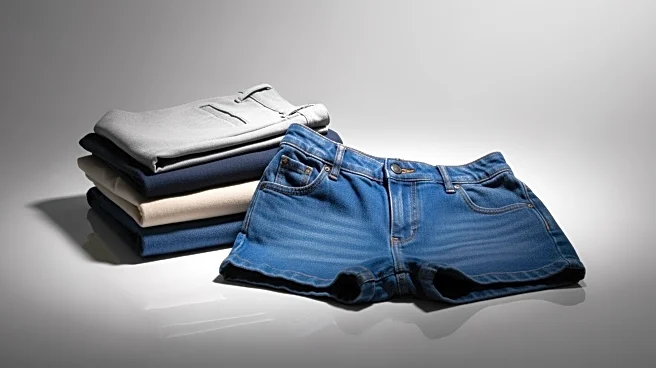What's Happening?
Bangladesh has seen a 9.6% decline in its exports of trousers and shorts during the period from January to September. The country's exports to Europe, its largest market, fell by 12.3%, while exports to North America, the second-largest market, decreased
by 3.2%. The decline in European orders is attributed to slower retail sales, inflationary pressures, and cautious buying by fashion brands amid geopolitical uncertainty. In the U.S., demand remains constrained by tighter consumer budgets and rising import tariffs, although Bangladesh has gained slightly in market share as some buyers diversify sourcing from China.
Why It's Important?
The decrease in Bangladesh's apparel exports highlights the challenges faced by the global textile industry due to economic uncertainties and trade barriers. Rising tariffs and inflationary pressures can lead to increased costs for manufacturers and consumers, affecting profitability and market dynamics. The shift in sourcing strategies by U.S. buyers indicates a potential change in global supply chains, which could impact Bangladesh's economy and its position in the international apparel market.
What's Next?
Bangladesh may need to explore new markets or enhance competitiveness to offset the decline in exports. The country could also engage in trade negotiations to address tariff issues and improve market access. Fashion brands and retailers might reassess their sourcing strategies to adapt to changing consumer demands and economic conditions. The situation could lead to policy discussions on trade and economic cooperation between Bangladesh and its trading partners.
Beyond the Headlines
The decline in exports reflects broader economic challenges, including inflation and geopolitical tensions, affecting consumer spending and business strategies. It also raises questions about the sustainability of current trade practices and the need for innovation in the textile industry. Long-term shifts in consumer behavior and trade policies could reshape the global apparel market.
















